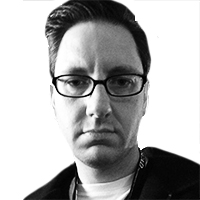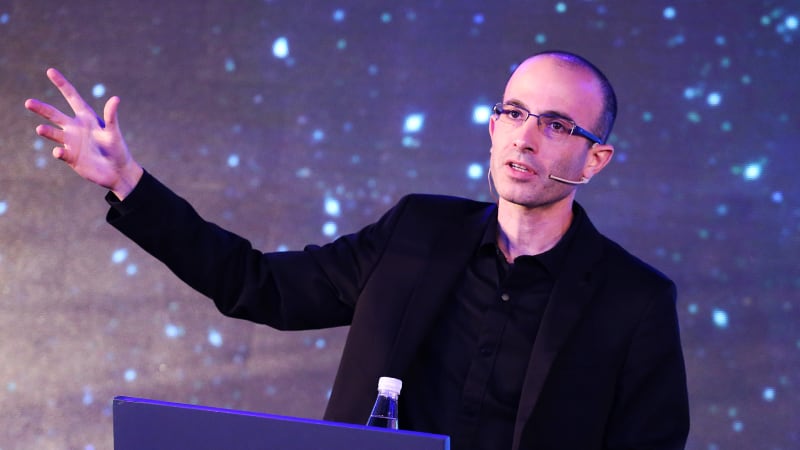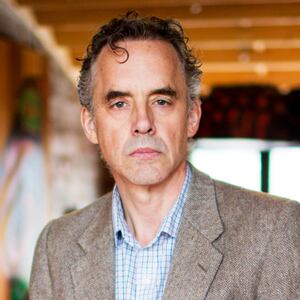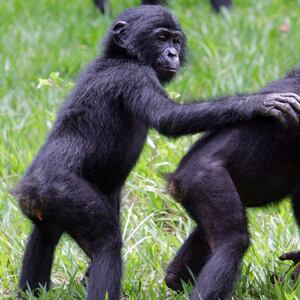One of my favorite one-liners is the joke by economist Paul Samuelson that the stock market has predicted nine of the last five recessions. It highlights the idea that sometimes we’re bad prognosticators because we see “trends” that were really just data points.
So how do you tell the signal from the noise? How do you know when something new is also something big? How much do our primate brains and changing weather patterns tell us about the future of immigration or war or online dating apps?
“I don’t think of history as much about studying the past as about studying change,” says Yuval Noah Harari, a historian at the Hebrew University of Jerusalem and author of the New York Times bestseller Sapiens. “And one of the main tools for studying change is looking at past changes in human society and political systems.”
ADVERTISEMENT
In his new book, 21 Lessons for the 21st Century, Harari looks at job automation, privacy, democracy and other areas where technological change and climate change are upending the accepted norms in ways that Congress, the White House and the broader conversation are not yet addressing. Harari sat down with The Daily Beast to talk about where he thinks the world is headed and why we should be talking about it.
The first line of the book is: “In a world deluged by irrelevant information, clarity is power.” How do you know the the difference between the irrelevant and the relevant?
I try to look at things from a macro, big-picture perspective. When you’re looking at the details, it’s difficult to tell what’s important and what isn’t. Especially in a fast news cycle, it’s very difficult to know what’s part of a long-term trend and what’s a blip on the radar. I’m a historian who’s interested in developments that last for centuries, and I try to look at the present from that perspective.
Do you spend most of your time reading books and avoiding the news?
Most of what I read and study is academic and scientific books about history, biology, economics, computer science, etc., but I don’t really follow the daily news cycle. I notice some things, but I try not to get caught up in the news. I read long books instead of short tweets.
That’s particularly interesting in your writing because you’re always going backwards and forwards at the same time. You write about things like biometrics and AI that require you to read and research new science, and you’re also reading about primate biology. How do you manage that?
It connects. The first thing you need to know about biometrics is that humans are animals. If you start with the assumption that humans are distinct from other animals—that we have eternal souls, that we make decisions on some metaphysical basis rather than on the basis of chemical reactions—then you will think that biometrics would never work for us. If you read the literature on how similar bonobos and chimpanzees are to humans, you’ll see how much humans are just animals. There’s a very close connection there between the past and the present.
For many years, my specialization was in medieval history. When I hear about fake news and the spread of unfounded rumors, my immediate reaction is that it’s nothing new. If someone came to a medieval village and said “I just saw the woman who lives at the edge of the forest flying on a broomstick,” you’d have a raging mob ready to burn her to death within a few hours. You don’t need Facebook and Twitter for that. The idea of fantastical, false stories circulating around and causing fear and hatred is nothing new to a medieval historian.
How important is it for you reading something that you have an initial trust in the writer?
It’s very important because you can’t investigate everything. The entire scientific project is based to a large extent on trust. When I read a book by Jane Goodall about the time she spent studying chimpanzees, I trust her. Every experiment that is published in a peer-reviewed journal is subject to replication. There’s a very long process in the scientific community to gain the status of a reliable scientist. You get a Ph.D., you write articles, and you build your reputation.
If you go into a bookstore and the two books on the corner of the politics table are by David Sanger and Dinesh D’Souza, do you make initial judgments about the veracity of those books based on what you know about those individuals?
If I have prior knowledge about the individuals, then yes. We’re on the verge of the possibility of completely falsified video recordings, of a video of President Trump saying anything you want to make him say. It will become increasingly different to tell the difference between real video and fake video, and the only way to know whether it’s real will be the source of the video. Who is posting it? What are his sources? What is his credibility?
Credibility is so situational, though. If you take two journalists, the far left would say that one is not acting in good will and the far right will say that the other is not acting in good will. Reputation is a function of who’s asking.
There are many more books in the world than I could ever read in my lifetime. My choice of one book over another is based to a large extent on assumptions that I have about the reliability and the importance of the books before I read them. It’s different in the scientific community than in public affairs and news. The goal of the scientific community is to build a basic consensus so that people can disagree—and sometimes disagree vehemently—on a common basis of facts and experiments and observations. You don’t have two groups of astrophysicists who don’t talk to each other or read each other’s books.
Sam Harris and Ezra Klein got into a spat earlier this year about racial differences in IQ testing. Harris said you have to follow the science where it goes, and Klein says the IQ testing is itself the product of racial bias. Did you follow their discussion?
Each of them is concerned about a different question, which is why they’re talking past each other. Sam Harris says you should go by the evidence and not prejudge the evidence, and I don’t think he has a deep interest in the actual question of racial differences in IQ. He is more interested in defending the idea that the evidence should get the final word. Ezra Klein is more concerned about the issue that merely raising the question is politically problematic.
Do you see scientists who research areas like transgender identification and race get criticized for doing research in those areas?
Throughout the history of science, there have been questions where merely raising the questions has been problematic. Everything I know about biology and history says that whatever innate racial differences there are in intelligence are so minute that it is a distraction to focus on it.
There certainly is testing bias when you have people from different cultures, different emphasis on reading vs. spoken-language learning, etc., and it makes it difficult to generate normative data on people from different backgrounds. I think Harris would acknowledge that.
The testing is extremely difficult. If what you really want to do is explain the difference in wealth between people of European descent and people of African descent, and you find a small statistical difference between IQ, it explains so little of what you’re investigating. It carries such huge political baggage that I don’t think it’s worth pursuing. I’m in favor of wading into a political minefield when what you could find justifies the problems you will encounter, but biology explains very little about historical differences.
Sam Harris is part of a group of thinkers like Steven Pinker, Michael Shermer, Tim Ferriss, etc., who have come to be known as the intellectual dark web, which is a terrible name because there’s nothing particularly underground about their views. Do you find any commonality among this group beyond that they find audiences on social media?
There is room for greater interaction between the scientific community and the general public, and scientists should engage the public more through podcasts and Facebook and other social media tools. The most important problems of the 21st century are nuclear war, climate change and technological disruption. In order to have a meaningful debate about any of those things, you need a good understanding of science.
We’ve seen with climate change the terrible implications of the scientific knowledge not making it to the general public. In the coming decades, artificial intelligence and bioengineering may become big issues. If the public doesn’t have a basic understanding of those things, we won’t have a meaningful, reasonable debate. It’s more important than ever for scientists to speak to the public and not just speak to each other.
When you look at the current discord in the United States and Europe over immigration, do you see that in terms of it reflecting any particular biological or evolutionary impulse?
That’s a good example of how history can inform our thinking. I hear people say that nationalism and tribalism are our genes, but nationalism and tribalism are very different things. For millions of years of evolution, humans have lived as social animals, but they lived in small, intimate communities. It’s natural for people to develop loyalty and strong ties to a small group of individuals, but nations are a completely different thing.
Nations are groups of strangers who will never meet but see each other in their minds as friends. Israel has 8 million people, and I’ll never meet all 8 million of them. The idea that I should feel loyalty to that large group of people is something that has been a part of human history for only the last few thousand years, which is insignificant in the scope of human evolution.
Do you draw a distinction between academics who write for a popular audience and academics who just write really good books about their areas of study?
It depends on the field. It’s easier to write a good history book that appeals to academics and to the general public than it is to write a book about quantum physics or computer science. For years, I wrote books and articles that were aimed at a very small circle of academic experts. If you read them—which I don’t really recommend—they’re different kinds of books than Sapiens and Homo Deus.
Ideally, you should be able to speak to both audiences in the same way at the same time, but it’s extremely difficult. There’s a case to be made for scientists spending some of their time writing erudite, academic papers for a small community of experts and some of their time communicating those ideas in a clearer and simpler way to the general public.
How do you want to divide your next 10 years between academic research and writing vs. communicating the things that you see?
I hope to take some a year or two after this book to spend more time on research and thinking. For the last five years or so, I’ve been giving almost all of my attention to going outward, and I need a period of internalizing and having more time to read and think. There are so many demands on my time that I find myself talking more about things I already know than about exploring new things.
Do you think about that as an academic—that there are parts of the world or parts of history you haven’t gotten to that you want to explore—or do you think about that more as a public person and educator who thinks you need to have something new to say?
It’s a bit of both. History is one of those fields where you can be a scientist and an educator—where you can talk to experts and to the general public—at the same time. Even when I talk about cyborgs and AI, I still feel myself above all as a historian.
How much utility is there in writing as a futurist? Have previous futurists gotten very much of it right?
When I talk about the future, I try not to talk as a futurist. I try not to say that in 20 years we will live like this and the political system will be like that. I see my job as trying to map different possibilities. Futurists try to zoom in on a narrow range of things that they think will happen—China will be the greatest economic power, the European Union will collapse, the United States will go to war, etc.
I’m trying to expand the range of possibilities. There are many possibilities that don’t occur to us because we’re trapped in our own worldviews. Our worldviews are trapped by a history of liberal democracy and capitalism and the industrial revolution, so it’s difficult for us to see possibilities that go beyond those things.
I hadn’t thought about history in those terms. You’re trained as a historian to control for the inevitability bias that we apply to history, and you’re talking about the same thing in the way you look to the future.
The idea is not to guess right. The idea is that by exposing people to different possibilities, you can influence their thinking and their decisions today. I find myself portrayed as a doom prophet—that I say AI will destroy the job market—but I focus on dangerous scenarios in the hope that people will become aware of those things and take action to prevent them from happening.
The people in Silicon Valley who are leading the technological revolution have an incentive to focus on everything that can go right and on the promises they’ve made about their technology. It becomes the responsibility of historians and philosophers and social critics to consider the dangerous possibilities.







